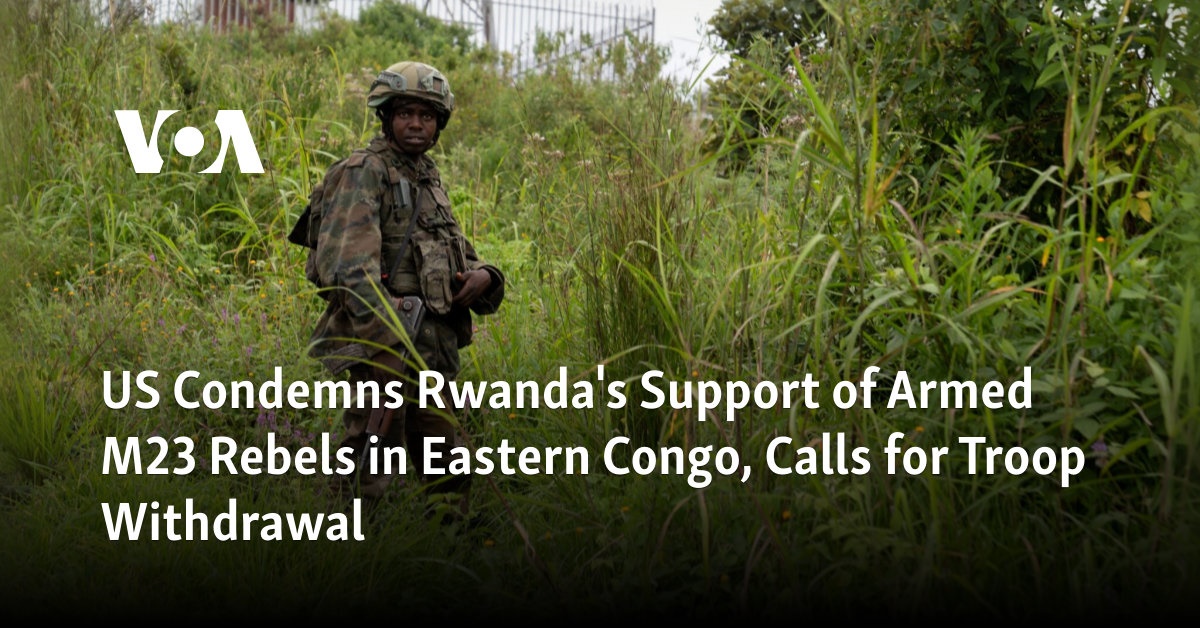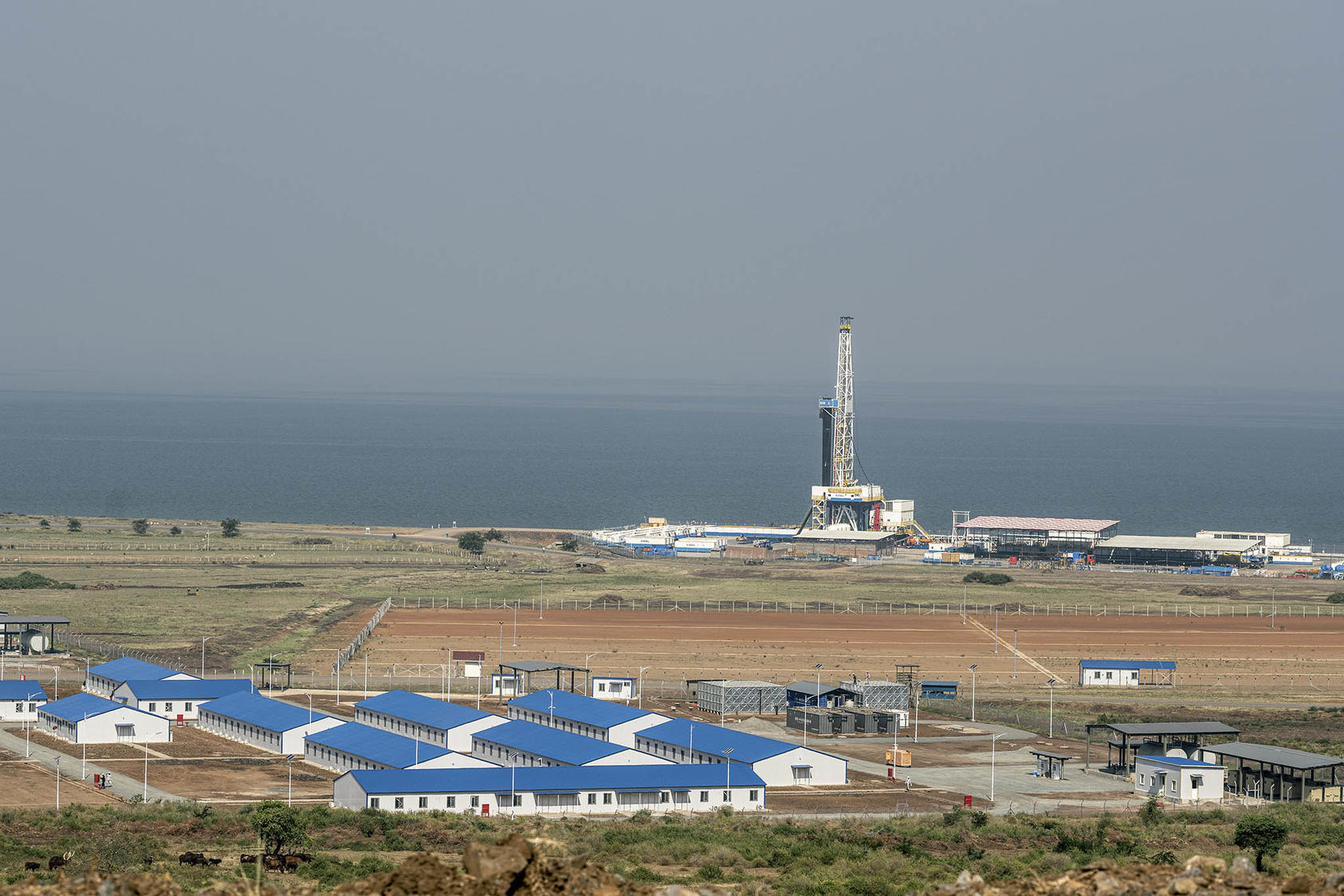You are using an out of date browser. It may not display this or other websites correctly.
You should upgrade or use an alternative browser.
You should upgrade or use an alternative browser.
THE PIVOT TO AFRICA 🌍 THREAD
- Thread starter ☑︎#VoteDemocrat
- Start date
More options
Who Replied?
The Rise of Turkey in Africa | Al Jazeera Centre for Studies
The face and the fate of African continent in the 21st century is changing fast and its network of foreign relations is becoming more complex as new actors are interacting with African countries.

How Erdogan turned Turkey into a key player in Africa via economy, religion, arms… - The Africa Report.com
Turkey’s President Recep Tayyip Erdogan has turned his country into a major player across Africa through economic, diplomatic, and even military matters.



Bill Gates-backed mining company discovers vast Zambian copper deposit
KoBold Metals’ discovery comes as US steps up African metals push to rival China’s dominance
 www.ft.com
www.ft.com
Bill Gates-backed mining company discovers vast Zambian copper deposit
KoBold Metals’ discovery comes as US steps up African metals push to rival China’s dominance

A mining start-up backed by Bill Gates and Jeff Bezos said it had discovered a vast copper deposit in Zambia, offering a potential boost to the west’s efforts to cut its reliance on China for metals vital to decarbonise everything from cars to power transmission systems.
KoBold Metals said on Monday that it had found Zambia’s largest copper deposit in a century, estimating that the Mingomba site in the northern Copperbelt province will become one of the world’s top three high-grade copper mines.
The discovery comes as the US government embarks on a charm offensive and infrastructure push in Africa in an effort to compete with China’s control over minerals that are critical for defence, renewable power and electric vehicles.
The US government is backing the development of the Lobito railway, a line to transport metals in the region connecting the Democratic Republic of Congo and Zambia to the Lobito port in Angola.
While demand for copper is forecast to soar as countries set up efforts to electrify their transportation systems and pivot to renewable energy, the world’s largest mining companies are struggling to find high-quality assets.

Copper, which is widely used in construction and industry, is expected to undergo a boom in demand as it is heavily used in power transmission lines, electric vehicles and wind turbines.
“We’ve spent a year with the largest fleet of drilling rigs in Southern Africa,” Josh Goldman, founder and president of KoBold Metals, told the Financial Times. “We now know that Mingomba will be one of the very highest grade large copper mines when put into production and it’s very much like Kakula in scale and in grade.”
KoBold expects Mingomba will rival output at the deposit that is part of US billionaire Robert Friedland’s giant Kamoa-Kakula project in the Democratic Republic of Congo.
Backed by Breakthrough Energy Ventures, a climate change investment vehicle founded by Bill Gates, KoBold deploys artificial intelligence to scrape historical geological archives — including old PDFs and even maps hand painted on linen — and uses algorithms to help decide where to explore for minerals.
The California-based company is valued at $1.15bn, and also counts BHP, the world’s largest mining group, and oil major Equinor, as investors.
KoBold aims to start producing copper at the $2bn underground mine by the early 2030s.
The project has yet to conduct a pre-feasibility study, which provides early estimates of project costs and how economically the metal can be extracted.
If successful, the project would play a big role in meeting Zambian President Hakainde Hichilema’s ambition to more than treble the country’s copper output to 3mn tonnes by 2032, and help the nation dig its way out of debt.
Spending by the world’s biggest mining companies on copper exploration was small relative to volume of the metals the world was expected to need, Goldman said. Exploration companies, meanwhile, were struggling to raise capital because of interest rate hikes, he added.
“Exploration is where babies come from. You can help babies grow but you’ve got to get the birth rate up,” said Goldman. “That’s the hardest part: how do you find things in the first place.”
Goldman added that the company was evaluating a public listing in the next three or four years.


They’re rejecting imperialism and colonialism



US Condemns Rwanda's Support of Armed M23 Rebels in Eastern Congo, Calls for Troop Withdrawal
The US State Department in a statement strongly criticized 'the worsening violence ... caused by the actions of the Rwanda-backed, U.S.- and UN-sanctioned M23 armed group'
 www.voanews.com
www.voanews.com
US Condemns Rwanda's Support of Armed M23 Rebels in Eastern Congo, Calls for Troop Withdrawal
Associated PressKampala —
FILE - An M23 rebel looks on in Kibumba in eastern Democratic Republic of the Congo, Dec. 23, 2022. Clashes have intensified recently between the M23 and the Congolese army in eastern DRC.
FILE - An M23 rebel looks on in Kibumba in eastern Democratic Republic of the Congo, Dec. 23, 2022. Clashes have intensified recently between the M23 and the Congolese army in eastern DRC.
The U.S. has condemned Saturday Rwanda's support of the armed M23 group in eastern Congo, whose rebellion has caused the displacement of hundreds of thousands of people, and called on the rebel group to “cease hostilities.”
The U.S. State Department in a statement strongly criticized “the worsening violence ... caused by the actions of the Rwanda-backed, U.S.- and UN-sanctioned M23 armed group.” It called on Rwanda "to immediately withdraw all Rwanda Defense Force personnel from the [Congo] and remove its surface-to-air missile systems,” which it said threatened civilian lives and peacekeepers. It also urged the rebels to retreat from their current positions near two urban areas in Congo’s North Kivu province.
This is likely to put pressure on Rwanda, whose government has repeatedly denied any links to the M23 group.
Congolese President Felix Tshisekedi has accused Rwanda of destabilizing Congo by backing the rebels. U.N. experts previously said they had “solid evidence” that members of Rwanda’s armed forces were conducting operations there in support of the M23 group.
Fighting near Goma, the capital of North Kivu province and the largest city in the region, has intensified in recent days as the rebels threatened to take over the metropolis. Residents of the nearby town of Sake have been fleeing fierce fighting between Congolese government troops and the group.
The armed conflict has so far displaced more than one million people in eastern Congo since November, according to the aid group Mercy Corps.
Many M23 fighters, including Congolese Tutsis, were once members of Congo's army. The group's leaders say they are fighting to protect local Tutsis from extremist Hutu groups such as the Democratic Forces for the Liberation of Rwanda, whose members were among the perpetrators of the 1994 genocide in Rwanda.
M23 is one of more than 100 armed groups active in eastern Congo, seeking a share of the region’s gold and other resources as they carry out mass killings.
The rebel group rose to prominence just over a decade ago when its fighters seized Goma, which borders Rwanda. It derives its name from a March 23, 2009, peace deal which it accuses the Congo government of not implementing. After being largely dormant for a decade, the M23 resurfaced in late 2021.
The U.S. statement urged all sides to de-escalate and to “participate constructively in reaching a negotiated solution” to the conflict.
“It is essential that all states respect each other’s sovereignty and territorial integrity and hold accountable all actors for human rights abuses in the conflict in eastern [Congo],” it said.

The Father, the Son and the Fight Over Their King
A student’s vow to overthrow one of Africa’s last ruling monarchs faces a roadblock: his own father, a soldier sworn to protect the throne.
The Nigerian Naira crosses the 2000 mark against Great Britain's Pound
The Nigerian currency, the Naira which has been in a freefall since the year began has crossed the 2000 mark against the British Pound

Is China Eyeing a Second Military Base in Africa?
For over three decades, every Chinese foreign minister’s first overseas trip of the year has been to Africa. This year continued the tradition with China’s foreign minister, Wang Yi, visiting Egypt, Tunisia, Togo and Côte d'Ivoire. Notably, every one of these countries is coastal. And yet, at a...
Is China Eyeing a Second Military Base in Africa?
Chinese foreign minister’s visit to coastal African countries stirs speculation.
Tuesday, January 30, 2024 / By: Alex Vines; Henry Tugendhat; Armida van Rij
Publication Type: Analysis
For over three decades, every Chinese foreign minister’s first overseas trip of the year has been to Africa. This year continued the tradition with China’s foreign minister, Wang Yi, visiting Egypt, Tunisia, Togo and Côte d'Ivoire. Notably, every one of these countries is coastal. And yet, at a time of continued speculation over China’s next military installation in Africa, none of these countries has featured prominently as potential locations in previous analyses. We might, therefore, reasonably ask what China’s current considerations are around basing in Africa. Faced with an increasingly multipolar and assertive Africa at a time of domestic economic challenge, however, China’s long-term strategy remains unclear.
China National Offshore Oil Corporation began drilling at the Kingfisher oil field, located on the shore of Lake Albert in western Uganda, in late January 2023. (Arlette Bashizi/The New York Times)
China National Offshore Oil Corporation began drilling at the Kingfisher oil field, located on the shore of Lake Albert in western Uganda, in late January 2023. (Arlette Bashizi/The New York Times)
China’s Base in Djibouti
China has one base on the African continent which opened in Djibouti in the Horn of Africa in 2017. The overt goals of this installation are anti-piracy and freedom of navigation, part of a strategy aimed at securing trade corridors alongside developing alternatives such as the longer but less-contested Mozambique-South Africa route.
Houthi militants’ current attacks on commercial shipping in the Red Sea and a renewed attack by pirates on shipping in the waters off Somalia have once again validated the strategic value of Djibouti and ensuring adjacent sea lines of communication such as the Bab al Mandab Strait remain navigable. Furthermore, in the 2011 Libya crisis, China had to protect some 35,000 citizens with very few resources on the ground; a failing that ostensibly justified an African base.
However, Djibouti is also an exceptional case in terms of the number of foreign bases that it hosts, and its strategic geographic value to so many international partners. Indeed, Japan and Saudi Arabia also have bases there and nowhere else on the continent. In many respects, China’s Djibouti base tells us little about China’s strategic considerations over expanding its military footprint in the region.
A Growing Liability
The fact is military bases can be a liability for their foreign governments in times of crisis. In Niger, the U.S. military is struggling to carve out the diplomatic space necessary to keep Air Base 201 running; one of the U.S. military’s biggest investments in the continent that has been hamstrung by the coup last year. The U.S. military is now exploring other points of presence in West Africa, but with little success so far. U.S. Secretary of State Antony Blinken’s visit to coastal West Africa may well have touched on this issue as he met with leaders in Cabo Verde, Côte d’Ivoire, Nigeria and Angola earlier this month.
The British, meanwhile, had to go through tough negotiations in 2021 with Kenya to extend their training base lease as French bases have been closing across the Sahel and United Nations missions have been dismantled. Similarly, India’s failed attempts to open a military facility in the Seychelles are illustrative of the direction of travel across the African continent.
Historically, hosting military bases has generated political capital for African governments, with varying degrees of success in boosting economic activity. Engagement with great powers has been important for domestic legitimacy and regime survival but has not shown consistent results in benefitting non-elite citizenry. Basing has also been lucrative for countries such as Djibouti, where, according to the International Monetary Fund, it accounted for an estimated 0.1% of gross domestic product in 2020, and allowed Djibouti to leverage its strategic access to a critical chokepoint between the Red Sea and Gulf of Aden.
A Liability Also for the Host
However, military bases can also be a political liability for African governments that host them. African populations, political leaders and institutions are often wary of foreign bases for a number of reasons, including the perception that the foreign military may undermine the host government’s domestic agenda or sovereignty.
The mood across Africa about establishing more foreign bases is increasingly ambivalent. A 2016 AU Peace and Security Council decision warned countries to be “circumspect” about permitting more foreign bases, and this view has hardened further since then given the turbulent geopolitical winds in parts of the region.
China is no doubt sensitive to these developments and will be just as wary of the impermanent nature of these agreements as others. China is wont to make sure it is not caught off guard like it was when thousands of Chinese nationals were stranded in Libya in 2011, or when its economic interests were threatened in South Sudan. However, just because China wishes to have an increased footprint in the region does not necessarily translate into reality. African countries have good reason not to be seen as picking sides and may well have rebuffed or forestalled Chinese proposals.
What is China Thinking?
What is more likely is that China will seek to expand the existing civilian port infrastructure and build dual-use facilities in African ports that it has invested in. The dual-use basing model entails mixing access to commercial ports and a selective number of military facilities to downplay the military significance of China’s strategic port investments. According to the Chinese, 100 African ports have either been built, financed or are currently operated by Chinese state-owned shippers.
Indeed, Wang’s trip to Africa appears to have been less focused on establishing a new basing agreement and more so on signaling China’s consistent commitment to high-level engagements on the continent. Yet, there is good reason to believe that Wang will have had an opportunity to discuss China’s security interests while in Africa. This might have included shipping lines through the Mediterranean and Suez Canal with Tunisia and Egypt, and fishing and piracy interests off the coasts of Togo and Côte d’Ivoire. It could also have included a discussion of China’s Global Security Initiative more broadly.
In any event, China is now facing an increasingly multipolar and assertive Africa that is pushing foreign powers to clarify their security interests as security for whom and from whom. China will likely continue to push for buy ins to protect or advance its interests, but it will be as dependent as it ever was on local politics and the particular relationships those come with. All in all, this most recent senior-level Chinese visit to coastal Africa may best be interpreted as politics of the possible rather than anything more concrete for now.
Alex Vines is the research director for regions and director of the Africa Programme at Chatham House.
Armida van Rij is a senior research fellow in the Europe Programme at Chatham House.

